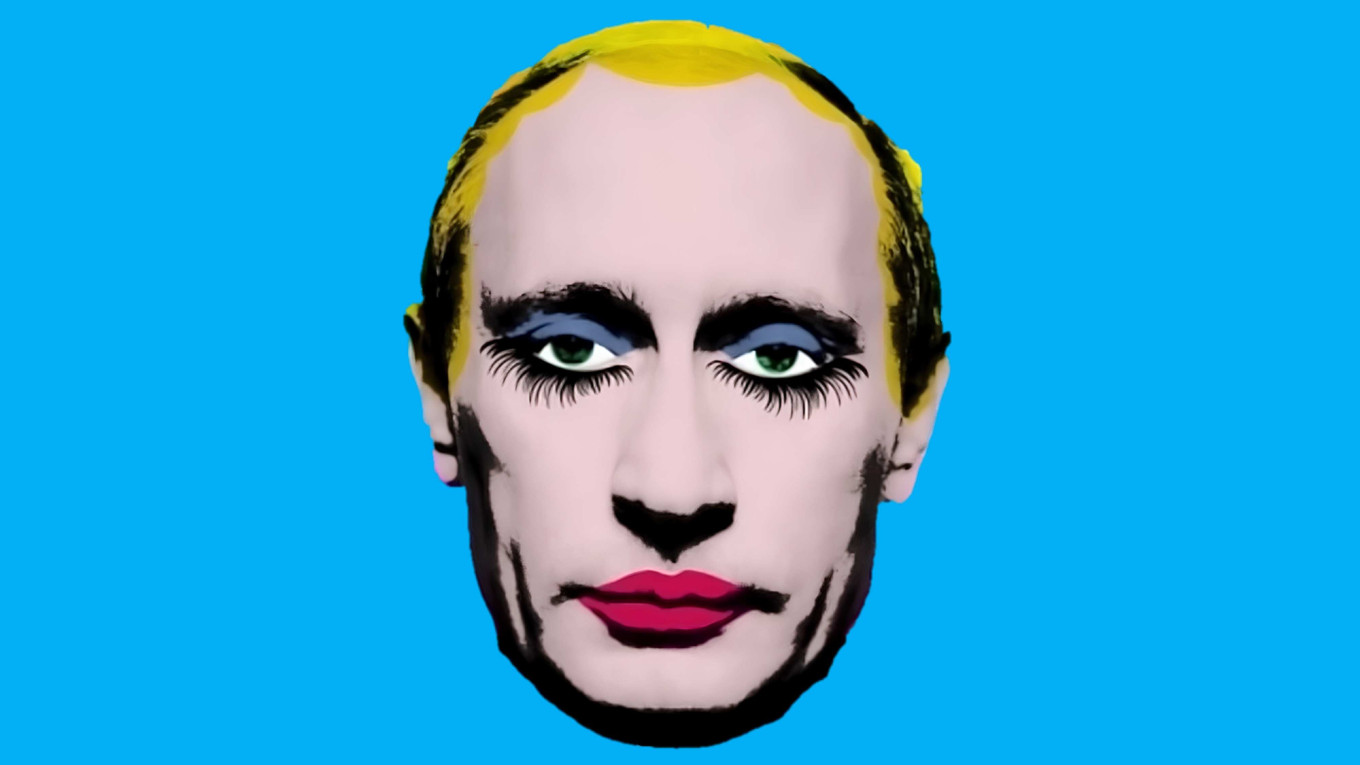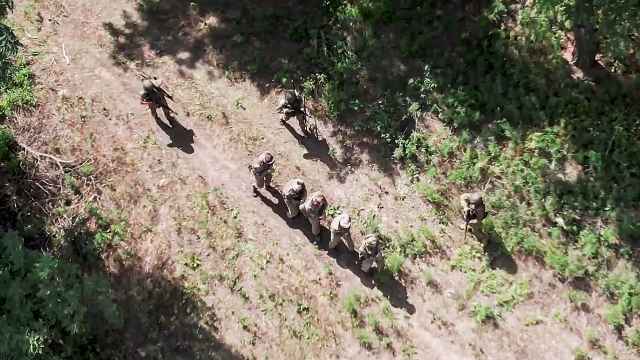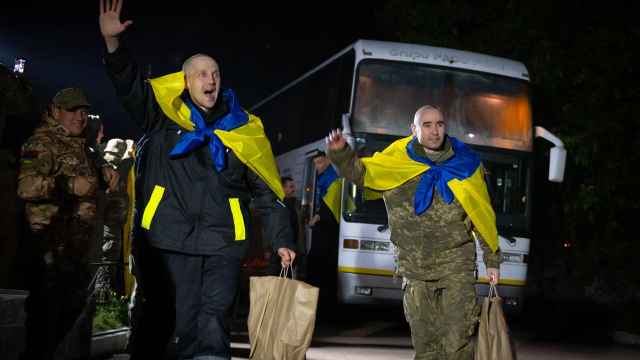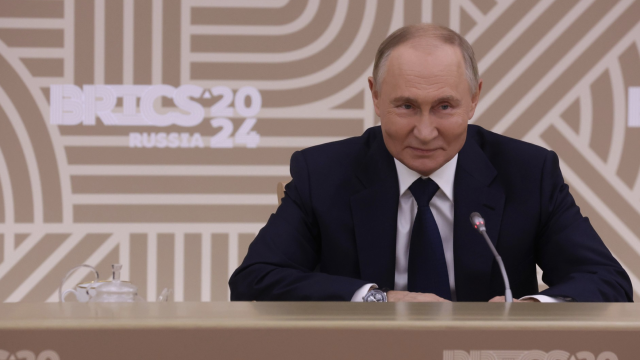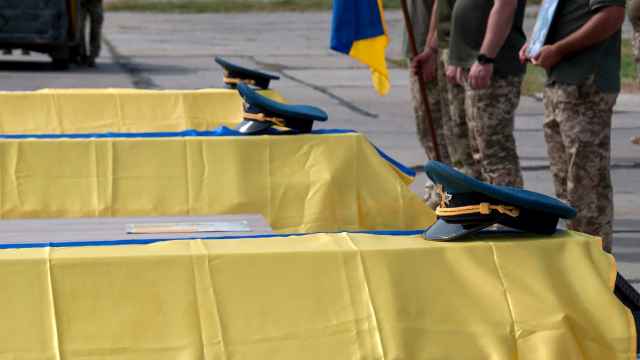The Kremlin’s strategic tradecraft of blurring the line between fact and fiction has become one of its most potent tools in modern warfare. Known as maskirovka, it relies on propaganda and deception to inflate perceptions of Russian power and obscure its vulnerabilities.
The sudden collapse of the Syrian regime, once a cornerstone of Moscow’s influence in the Middle East and a key Russian protectorate, was a global humiliation for Russia. Paired with the assassination of a senior general in the heart of Moscow and persistent failures in Ukraine, these events threaten to undermine the Kremlin’s self-image as a dominant geopolitical power.
Since its full-scale invasion of Ukraine in February 2022, Russia has consistently distorted perceptions of its military prowess and successes on the battlefield. From the beginning, the Kremlin has claimed swift victories and minimal losses, in contrast with reliable, independent assessments that state otherwise. State media have routinely downplayed Ukrainian resistance and exaggerated Russian military successes, creating a parallel reality for domestic consumption and international intimidation.
Take the Kremlin’s portrayal of the Battle of Kyiv in the early stages of the war, for example. Despite failing to capture the Ukrainian capital and suffering significant losses, Russian propaganda painted the withdrawal as a strategic “goodwill gesture,” continuing a longstanding Russian tradition of inflating military capability through propaganda.
When confronted in the physical theatre of combat, the Russian military often defaults to brute force tactics where human lives, especially Russian, are expendable. British Defense Intelligence assesses that 700,000 Russian personnel have been killed or wounded between the start of the war and Nov. 22, 2024, with Russian troops currently averaging 1,600 killed in action per day.
Lenin is supposed to have said, “A lie told enough times becomes a truth.” The quote is also attributed to Joseph Goebbels. In reality, it belongs to the English writer Isa Blagden from her 1869 novel The Crown of a Life. Though Lenin never said it, this fact proves the statement itself, demonstrating that propagandists often fool even themselves. Everything is indeed not always as it seems.
Perhaps Putin’s most significant success in the Ukraine war was staring down the Wagner mutiny, an operation led by Russian mercenaries and not Ukrainian troops. In a 2023 Helsinki speech, U.S. Secretary of State Antony Blinken declared: “The Kremlin often claimed it had the second-strongest military in the world, and many believed it.” Hype and reality are two diametrically opposing concepts.
The Russian military’s formidable and invincible reputation is one of the most successful propaganda myths perpetuated by the Kremlin, bolstering the morale of its own citizens and intimidating its adversaries.
This allows the Kremlin to justify war with historical Russian narratives, drumming up domestic support by claiming to protect Russian-speaking minority populations in Ukraine, or exploiting antisemitism and invoking “de-Nazification.” In 2014, Putin presented his seizure of Crimea as a “peaceful reunification,” obscuring the violations of international law.
This tradition of obfuscation dates to Soviet times. Josef Stalin was infamous for airbrushing from the records those who fell from grace. Even the most iconic depiction of the Red Army’s triumph over Nazi Germany, the iconic image of the Soviet flag flying over the Reichstag, was staged and heavily altered to rival the emotional impact of the Iwo Jima photograph.
During the 1939-40 Winter War against Finland, Soviet propagandists grossly misrepresented the conflict’s reality, painting a picture of inevitable victory against a weak opponent. The outnumbered and outgunned Finns mounted a formidable resistance. A single Finnish sniper named Simo Häyhä killed 505 Soviet soldiers in 110 days. The Soviets’ losses were so high that they exposed the Red Army’s glaring weaknesses to the world — a humiliation so profound that it emboldened Hitler to believe that invading the Soviet Union would be as simple as to “kick in the door.”
More recently, Moscow’s concocted image of military invincibility was dented in Syria in 2018, when Russian forces faced off against U.S. soldiers in direct combat for the first time in a century. In the Battle of Khasham, 30 U.S. commandos and supporting air power decimated a force of 500 Russian mercenaries and pro-Syrian government troops.
Putin’s KGB background has shaped his preference for covert operations over direct confrontation. He responds to those who challenge his ideologies with state-ordered executions both at home and abroad. The Kremlin always initially denies involvement but welcomes the perpetrators with a red carpet, a hug and a medal on their return to the motherland in prisoner swaps.
Kremlin activities beyond Ukraine increasingly reflect a strategy of constant intimidation. Regular incursions by Russian planes into NATO airspace, with Sweden being a recent example, demonstrate an ongoing effort to test international resolve. When all other intimidation methods fail, the Kremlin often dangles the nuclear card like a deranged person threatening to pull out a grenade pin in a crammed elevator.
When the Biden administration allowed Ukraine to use U.S.-made weapons to strike Russian territory, Russian Foreign Minister Sergei Lavrov declared a “qualitatively new phase of the Western war against Russia,” and vowed that Moscow “will react accordingly.” Moscow has now published a new nuclear doctrine stating that any attack on Russia by a non-nuclear state, aided by a nuclear state, will be considered an act of aggression by both parties.
But this recent nuclear sabre-rattling is believed by few of Ukraine’s allies, who understand that its primary objective is manipulation and deterrence projection. As Putin understands it, the West is increasingly calling his bluff. This heightens the risk of escalation, calculated or accidental, maintaining psychological dominance and thus heightening the very danger he aims to avoid.
After the 2014 Russian invasion of Crimea, German Chancellor Angela Merkel and U.S. President Barack Obama discussed how Putin may not have been in touch with reality. The fact that Putin went largely unchallenged suggests that perhaps it was the other way around. What we allow to become real in the metaphysical mind inevitably manifests in the physical world. He demonstrated his mastery of the concept when he boasted about taking over Crimea “without a single shot being fired.”
Sun Tzu said that the acme of skill is to defeat an enemy without fighting. He recognized the cognitive domain as being like the high ground of a battlefield, as important as any other military capability.
Indeed, everything is perception.
As cognitive sovereignty emerges as one of our generation’s greatest national security challenges, the world must learn to fight ideologically, militarily and cognitively by preemptively maintaining information superiority to counter totalitarian and autocratic regimes’ mind games. Winning the cognitive battle means reclaiming the narrative and demonstrating that reality, not propaganda, dictates the course of history.
This article was originally published in The Australian Journal of International Affairs under the title “Challenging the Kremlin’s Hyperreality Construct.”
A Message from The Moscow Times:
Dear readers,
We are facing unprecedented challenges. Russia's Prosecutor General's Office has designated The Moscow Times as an "undesirable" organization, criminalizing our work and putting our staff at risk of prosecution. This follows our earlier unjust labeling as a "foreign agent."
These actions are direct attempts to silence independent journalism in Russia. The authorities claim our work "discredits the decisions of the Russian leadership." We see things differently: we strive to provide accurate, unbiased reporting on Russia.
We, the journalists of The Moscow Times, refuse to be silenced. But to continue our work, we need your help.
Your support, no matter how small, makes a world of difference. If you can, please support us monthly starting from just $2. It's quick to set up, and every contribution makes a significant impact.
By supporting The Moscow Times, you're defending open, independent journalism in the face of repression. Thank you for standing with us.
Remind me later.




